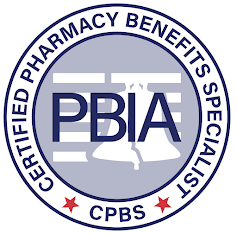Site-of-Care Shock Looms for Infusion Services and other notes from around the interweb:
- Site-of-Care Shock Looms for Infusion Services. Infusion therapy site-of-care (SOC) management policies imposed by third-party payors are driving an increasing number of infusion patients out of hospital outpatient departments (HOPDs). That’s not surprising, given the $6 billion size of this market. So, where will these patients go instead? Two SOC experts sought to answer that question during a session at the 2023 MHA Business Summit. “HOPD infusions cost on average 70% more than a physician’s office for the same infusion,” said Jacob Wiesenthal, a consultant to healthcare consultancy Recon Strategy, citing data from the Magellan Pharmacy Trend Report. But because many patients on long-term infusion therapy are often extremely sick and the treatments hard to tolerate, requiring clinical support nearby, he noted that employers and payors have not historically pushed to shift SOC for these cases, instead pursuing less risky cost-cutting opportunities. “As a pharmaceutical therapy typically covered under the medical benefit, infusion has also tended to fall through the cracks of expertise between the health plan and the pharmacy benefit manager [PBM].
- The Consolidated Appropriations Act and PBM Transparency. Pharmacy Benefit Managers (PBMs) have been extending vertical integration in new and unique ways, leading to significant issues for plan sponsors and plans (referred to as “Plans” collectively). In a new and innovative approach, several large PBMs have created an additional layer between themselves and manufacturers to effectively delegate the collection of manufacturer rebates to “rebate aggregators.” Sometimes referred to as rebate GPOs, these mysterious entities include Ascent Health Services, a Switzerland-based GPO that Express Scripts launched in 2019; Zinc, a contracting entity launched by CVS Health in 2020, and Emisar Pharma Services, an Ireland-based entity recently rolled out by OptumRx. Even some of the major PBMs (i.e., the “Big Three” PBMs) sometimes contract with other PBMs’ rebate aggregators for the collection of manufacturer rebates as seen in the case of OptumRx contracting with Express Scripts for rebate aggregation for public employee plans. Worse yet, several of these entities have claimed exemption from the federal GPO Safe Harbor, resulting in a lack of transparency, and few limitations of their profitability.
- FTC adds a third GPO to its investigation into pharmacy benefit managers. The Federal Trade Commission is building out its deep dive into the pharmacy benefit management industry yet again. The agency said Thursday that it has sent an order to the group purchasing organization Emisar Pharma Services, requiring it to provide information and records pertaining to its business practices. The order follows similar missives sent to two other GPOs, Zinc Health Services and Ascent Health Services, last month. Emisar negotiates rebates with drugmakers on behalf of Optum Rx, a UnitedHealth Group subsidiary and one of the three largest PBMs. The FTC said its order to Emisar is “substantially similar” to those issued to Zinc and Ascent.
- Report: “Specialty” Drugs are by Far the Most Expensive, but Classification Seems Arbitrary. The prescriptions with the most astonishing price tags — like cancer meds that can cost more than $20,000 a month — are usually classified as “specialty” drugs. You’d think that since they’re so costly, there would be clear criteria for putting drugs in the specialty category. But, according to a new report, you’d be wrong. The issue might seem arcane, but it’s hugely important. Specialty drugs account for only about 2% of the volume of drugs dispensed in the United States, according to industry estimates, but they also account for more than 50% of overall drug spending. The report, by data analysis firm 46Brooklyn Research, found that the three largest drug middlemen in the United States often don’t classify the same medicines as specialty. It also said that a substantial portion of the ones they do put into that category are generics — drugs that are usually no longer under patent and thus are supposed to be cheaper because multiple drugmakers can supply them.
